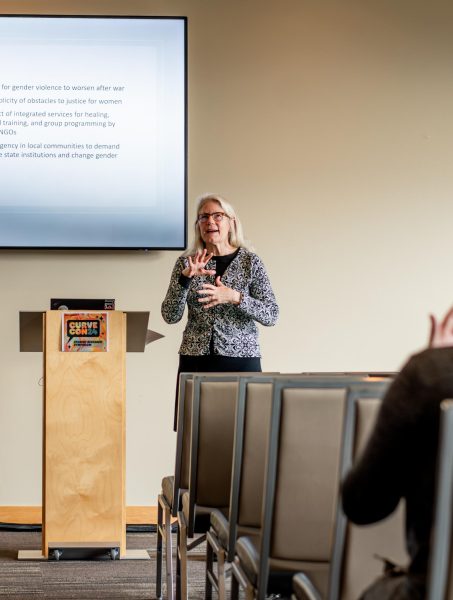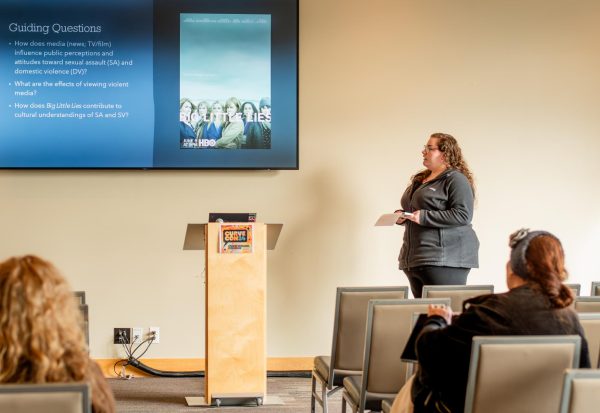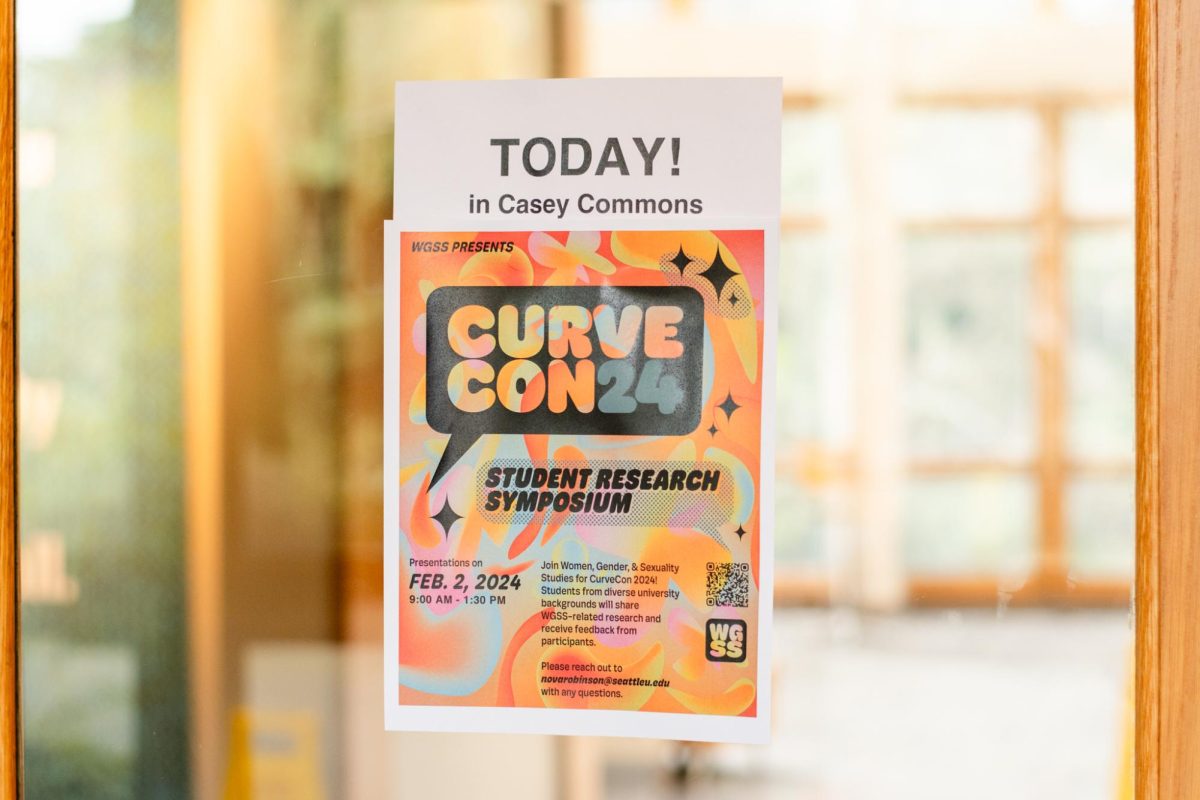In an effort to provide students the opportunity to showcase their research, the Women, Gender and Sexuality Studies (WGSS) Department held their fourth annual “CurveCon” Feb. 2. The panels organized included one on “Individual and Collective Modes of Women’s Activism” and another on “Analyzing Violences Against Women.” Three WGSS students were featured, each of them presenting works that related to history and the illumination of specific topics. Serena Cosgrove, an associate professor of international studies, was the keynote speaker and closed out the student research symposium with a presentation titled “Heal Her, Heal the Country: Women’s Activism in Post-conflict Settings.”
Chair of the WGSS Department Nova Robinson and Senior Administrative Assistant Heidi Speck worked diligently and closely to curate this year’s CurveCon. While the previous conferences were held in spring quarter, it was decided that hosting the conference in winter quarter going forward will give students the opportunity to receive feedback and workshop ideas that can potentially be developed into a senior thesis.

Speck expressed that CurveCon is beneficial for a multitude of reasons, whether that be becoming comfortable with public speaking or looking to put down experience on one’s resume.
“Looking back when I was a student, it would have been great to have those kinds of opportunities. I would have loved to have somebody look at my work,” Speck said. “I feel like it’s a great way to learn about workshops and panels in general so you can get a sense of what it is like.”
All of the students this year were first-time panelists, with Anneliese Stahly-Dronkowski, a third-year double major in history and WGSS, presenting first. About a year ago, she studied the life of Cheryl Marie Wade, a disability activist and poet who was diagnosed with rheumatoid arthritis. Stahly-Dronkowski initially felt insecure about what she produced, but revisiting her work for CurveCon made her more confident.
Stahly-Dronkowski expressed that she didn’t know a lot about disability activism and wanted to broaden her horizons on the topic. She believes that more attention needs to be given to disability rights activism and the women whose identities intersect within that, but in a way that amplifies the voices of others who have been cut off from the privilege of having their own platform.
One of the things that Stahly-Dronkowski expressed in regard to CurveCon was that she appreciated the amount of diverse perspectives.
“It’s unique being with so many people from different disciplines, and that we all come together in the realm of women, gender and sexuality studies. It’s really fun to see different people’s takes on my research, even if they’re not historians,” Stahly-Dronkowski said.
The second panelist was Claire Cox, a second-year double major in history and WGSS. Cox presented a paper that was focused on the #MeToo movement in Sweden. Their interest in this topic stemmed from wanting to know how the movement shows up differently internationally. Cox was attracted to Sweden in particular because Sweden is one of the countries with the highest level of gender equality, ranking fifth in the world.
An observation that Cox made was that the U.S. #MeToo movement has conversations largely surrounding the stories of individuals, while in Sweden the discussion is more holistic, as it is about systemic patterns of violence that perpetuate gender inequality and why people deny gender-based violence. The scope of Cox’s research was specifically based on workplace equality.
Skye Torrey, a second-year graduate student enrolled in the criminal justice program, was the third panelist and presented her research on the depiction of gender-based violence in the media. Using the show “Big Little Lies,” Torrey analyzed how the media desensitizes violence and, as a result, produces distorted perceptions of reality.

Being that gender-based violence is a sensitive topic, Torrey was unsure for a time if she would be able to handle delving into the research due to her own personal history. Yet, she believes that she’s made progress and that, despite other research interests, she always finds herself coming back to the issue. To Torrey, it is an essential conversation.
“When I see news articles or hear stuff on TV, most of the time it’s victim blaming and it’s really irritating. The media has such a big impact on how we perceive misogyny and violence against women,” Torrey said.
CurveCon is an opportunity for WGSS students to showcase any type of research they’d done in previous classes. Ultimately though, it serves as a supportive environment where students can bounce ideas off of another and further their interests in WGSS related topics.
“When I see my peers presenting their work, it’s very motivating for me… on a lot of levels they are likely the same generation as you are, so they have similar interests and work ethics. You can find a lot of support for your own research by building those connections,” Stahly-Dronkowski said.






Taber Rahmeyer
Feb 22, 2024 at 10:01 pm
Loved it